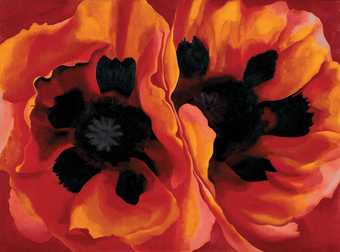The work of Georgia O’Keeffe has been approached through many lenses over the twentieth century, with conflicting readings stressing the sexuality of her images. Offering a feminist perspective of how O’Keeffe’s work has been reduced by these discussions, art historian Griselda Pollock explores how paying close attention to the things of the world structured her life and way of making art.
About Griselda Pollock
Griselda Pollock is Professor of Social and Critical Histories of Art and Director of the Centre for Cultural Analysis, Theory and History at the University of Leeds. Publications include After-affects I After-images: Trauma and Aesthetic Transformation (Manchester, 2013); Art in the Time-Space of Memory and Migration (Freud Museum and Wild Pansy Press, 2013) and forthcoming The Nameless Artist in the Theatre of Memory: Charlotte Salomon’s Life? or Theatre? (Yale, 2017), and The Memory Politics of Feminism (Verso, 2018).

